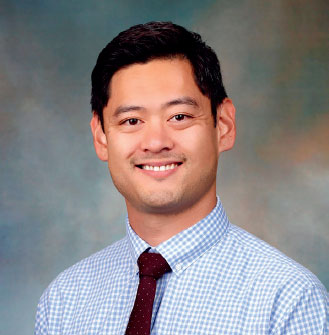Last Updated: Aug 25, 2021
 By: Edwin Kim, MD, Medical Director, Foundation of the Pennsylvania Medical Society
By: Edwin Kim, MD, Medical Director, Foundation of the Pennsylvania Medical Society
September 17 is National Physician Suicide Awareness Day. It is a day to acknowledge the nearly four hundred physicians – the size of an average medical school class – that die by suicide in the U.S. every year. That is an average of one physician per day in the year.
Last year, the issue of physician suicide was pronounced by the loss of Dr. Lorna Breen in New York during the first wave of the COVID-19. Dr. Breen’s death signified the tragic aftermath, not only of an individual’s personal struggle, but also the combined stress and trauma faced by physicians who provide our nation’s health care during a global pandemic. We observe this day of awareness as a solemn reminder that physicians too are vulnerable. It is an opportunity to conduct conversations about how to better identify and provide relief for physicians who may be suffering.
According to the Centers for Disease Control and Prevention, intentional self-harm (suicide) is the tenth leading cause of death in the U.S. Suicide is commonly associated with psychiatric disorders such as depression or bipolar disorder as well as substance use disorders. Losing interest in work or school, giving away possessions, and withdrawing or becoming more isolated can be early signs of suicidal behavior. With such a fatal outcome, the tremendous amount of suffering that an individual faces alone and in isolation seems unnecessary. Unfortunately, not all acts of suicide manifest with recognizable warning signs or behavior, and prevention can be difficult because suicide is difficult to predict. We can recognize the true dangers associated with frank precursors of suicide: thoughts of wanting to end one's life or wanting to go to sleep and not wake up are risk factors for suicidal behavior.
I am concerned that the epidemic of physician burnout and the challenges we face in the ongoing pandemic continue to impact our physicians. We do know there is some risk associated with suicide resulting from mental illness, and problematic substance use. Left under- or untreated, these stressors can be exacerbated by workplace burnout and even moral injury. These additive barriers prevent physicians in achieving a state of well-being to thrive both in their workplace and home.
Raising awareness of the risk for suicide begins with reducing the stigma associated with seeking help for mental health in addition to improving work conditions to mitigate the effects of burnout or moral injury. The process continues with educating physicians about the risk factors and warning signs. Finally, there is no study yet characterizing the potential correlation among burnout, moral injury, and trauma experienced at the workplace with thoughts or acts of suicide. For this, we need to fill gaps in our knowledge.
Join us in marking this important day to recognize the prevalent issue affecting our physician colleagues. On Sept. 17, PAMED’s Facebook page will feature videos of physicians with personal stories, as well as tips and resources. Check out the FB event page here, and make sure to post on Sept. 17 using the hashtag #NotOneMoreDoc.
If you or someone you know is experiencing a crisis, text HOME to 741741 for free, 24/7 crisis counseling. If you or someone you know is experiencing emotional distress or having thoughts of wanting to hurt or kill oneself, call the National Suicide Prevention Lifeline at 1 (800) 273-8255. Do not hesitate to call 911 or visit the nearest emergency room if suicidal thoughts or intention arise. Physicians also have access to resources through the Foundation of the Pennsylvania Medical Society’s Physicians Health Program (PHP). Learn more about the PHP here.